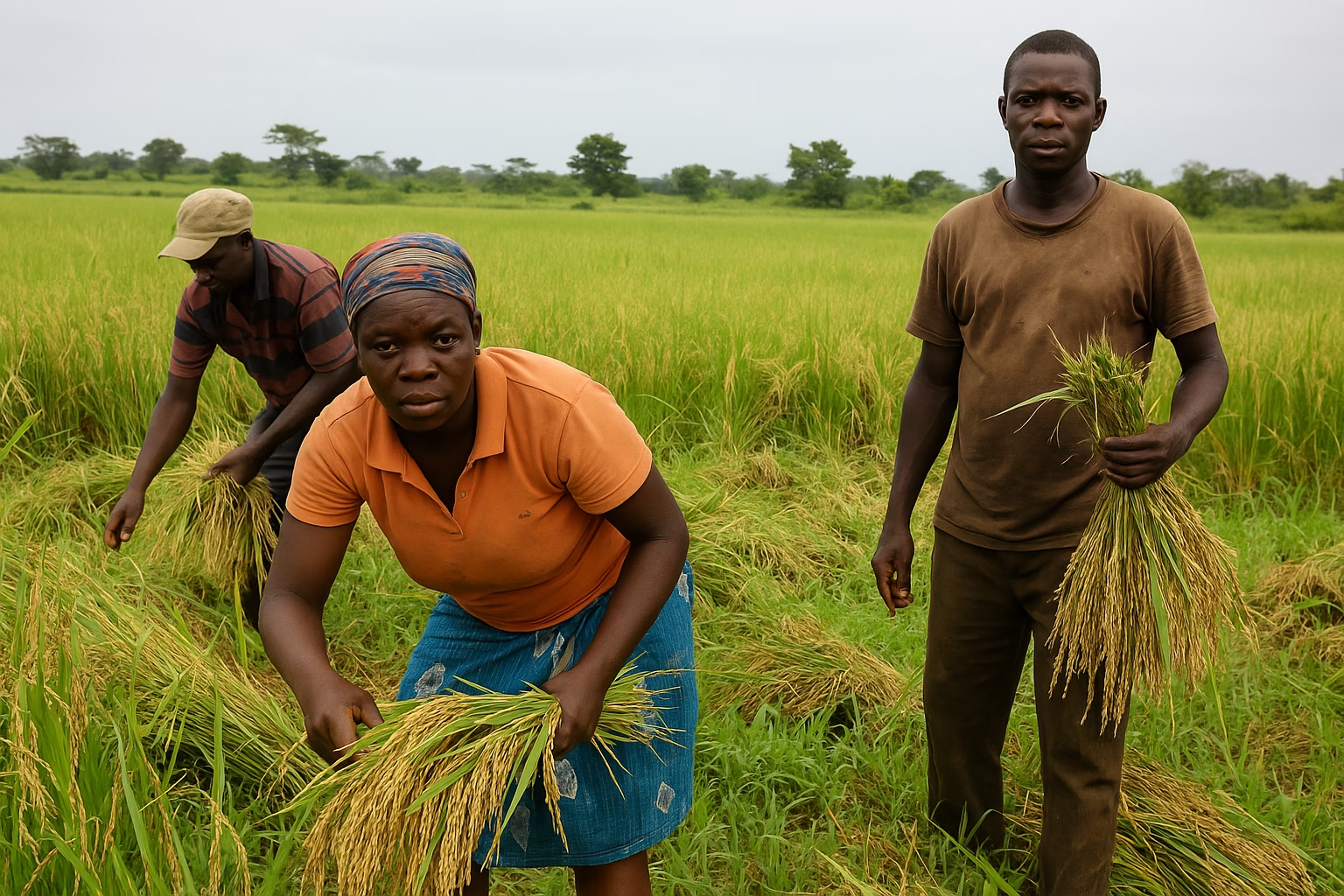Three Decades of Corruption-Driven Agricultural Policies Have Failed Ghana’s Farmers — It’s Time to Empower the Real Producers

Ghana’s agricultural sector, once the backbone of the national economy, is being crippled by three decades of corruption-driven government initiatives that have prioritized politics over productivity and self-interest over sustainability.
From President John Agyekum Kufuor’s ambitious “Special Initiatives” on cassava, palm, and cocoa, through John Mahama’s palm development agenda, to Nana Akufo-Addo’s highly publicized “Planting for Food and Jobs,” the pattern has remained the same — big promises, limited accountability, and minimal impact on the lives of real farmers.
Despite billions of cedis poured into agriculture over the years, Ghana continues to import food staples, while warehouses in Ejura, Techiman, Hohoe, and Sefwi sit full of unsold local produce.
The reason? Projects are often politically motivated, targeting urban contractors and middle-class elites who view agriculture as a funding opportunity, not a livelihood.
“We have passion, we have the land, we have the experience,” said a farmer from the Northern Region. “What we don’t have is government honesty. Every administration launches a new initiative so they can get contracts and kickbacks. The people who actually grow food are left behind.”
Cocoa Scholarship Exposed as Another Failure
Even programs intended to support farmers’ welfare — such as the Cocoa Scholarship Scheme — have come under fire for not reaching their intended beneficiaries.
Rural cocoa farmers say their children are rarely selected, with scholarships instead going to families of civil servants, politicians, and urban elites.
“The children of cocoa farmers deserve access to the scholarships funded by their parents’ sweat,” said an education advocate in Sefwi-Wiawso. “But corruption keeps redirecting those funds to the well-connected.”
A Vicious Cycle of Corruption and Abandonment
Analysts note that each successive government abandons the projects of its predecessor to create new “signature programs,” which only enrich a few and collapse within election cycles.
This cycle of neglect has kept Ghana’s farmers locked in poverty, even as the country boasts fertile lands, favorable weather, and a hardworking population.
“The issue is not lack of innovation — it’s lack of integrity,” said an agronomist from KNUST. “Until we depoliticize agriculture and strengthen existing farmers, no program will survive.”
The Real Solution: Strengthen Existing Farmers
Experts recommend a practical turnaround strategy centered on empowering existing farmers, not reinventing failed programs.
Key Recommendations:
- Provide modern retooling and training for local farmers to improve efficiency.
- Supply high-yield seed varieties and expand access to irrigation systems for all-year farming.
- Offer soft credit facilities with low interest rates to genuine smallholder farmers.
- Establish guaranteed local markets and link farmers to international value chains.
- Eliminate political interference and create transparency in agricultural funding.
If Ghana implements these measures honestly, the nation could witness a true agricultural revolution — driven not by slogans but by results.
“Invest in the people already farming, not the ones pretending to farm,” one farmer told Nsemgh.com. “When corruption stops, Ghana’s agriculture will grow again.”
Conclusion
Ghana’s agricultural future will not be revived through new “government projects” but through trust, transparency, and tangible support for those already cultivating the land.
Until corruption gives way to competence, every new initiative will remain another expensive repetition of failure.

